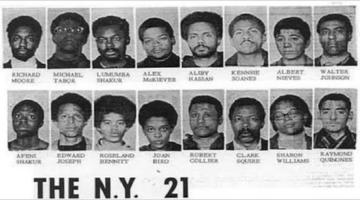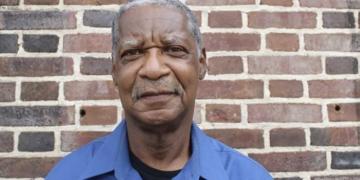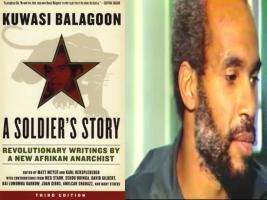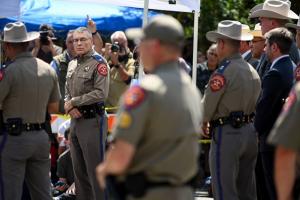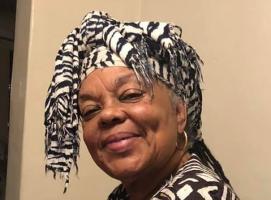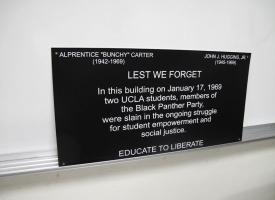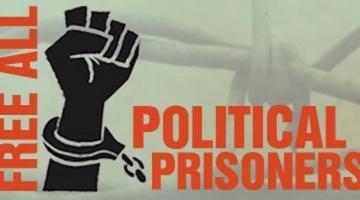A Brief Review of the Philadelphia Conference That Celebrated an Enemy of the US Government
“The conference condemned the many ways in which Temple and other academies of ‘higher education’ fully collaborate with the gentrification, poverty, and oppression experienced by working class and poor Black Americans.”
Huey P. Newton was the co-founder of the Black Panther Party -- one of the most controversial political organizations in US history. The Black Panther Party espoused revolutionary goals and possessed a concrete ten-point program to achieve them. Huey Newton was a key leader throughout the duration of the Party’s life. His courageous opposition to police violence placed the organization in the national spotlight. Under his leadership, the Black Panther Party was labeled "the greatest threat to the internal security of the country" by FBI director J. Edgar Hoover in 1969.
So why would any student organization celebrate him? On October 28th, the Temple University-based Black and Brown Coalition organized a conference celebrating Huey P. Newton. The conference, entitled "Huey P. Newton: Our Struggle for Self-Determination and World Peace," included presentations from former Black Panther Party members such as Regina Jennings and Yvonne King. King and Jennings shared their intimate connection with Huey Newton. East Oakland Black Panther Regina Jennings read Huey's anonymous poetry and reviewed the tragic story of Alprentice "Bunchy" Carter's assassination at the hands of the "US" organization. King gave a historical overview of the Black Panther Party. She discussed the prominent role Huey P. Newton played in the success and influence of the Party both domestically and globally.
“Huey Newton boldly organized armed patrols of the police and conducted independent investigations into police murders of Black community members.”
According to the conference's call to action, the event was organized "out of the necessity to raise the questions necessary to help guide us in the right direction through our struggle for freedom." The statement continues, "We believe that an education that uplifts the human spirit can help to expose . . . the hypocrisy of the system much like how the Black Panther Party did with the Free Breakfast program and free medical centers." The conference condemned the many ways in which Temple and other academies of "higher education" fully collaborate with the gentrification, poverty, and oppression experienced by working class and poor Black Americans.
Education was a central theme of the conference. Each panel channeled Huey Newton's contributions to history in the ideological and organizational realms. Panels investigated the significance of Huey's theory of revolutionary intercommunalism and education. Regina Jennings explained how the struggle of Huey P. Newton and Bobby Seale to institute a Black Studies program at Merritt College led to the emergence of Black Studies programs nationwide. Political prisoners Mumia Abu-Jamal and Dilbert Africa recorded statements that discussed Huey's love for the people and the struggle to free political prisoners in the US.
Another central theme of the conference was the question of war and peace. Few others embody this struggle more clearly than Huey P. Newton. Huey embraced the struggle for peace on many different fronts. He boldly organized armed patrols of the police and conducted independent investigations into police murders of Black community members. His deep knowledge of law was an inspiration throughout the party and prompted the state of California to pass the Mulford Act to ban open-carry weapons.
“Political prisoners Mumia Abu-Jamal and Dilbert Africa recorded statements that discussed Huey's love for the people and the struggle to free political prisoners in the US.”
Huey and the Black Panther Party were targets of the most violent government repression imaginable. The US government, as Huey explains in his dissertation, waged a war on the Panthers. FBI operations included the targeted assassination of Panther leaders, the raiding of Party offices, and the constant surveillance of member activities. In one of his last speeches, in 1986, Huey explained that he had accumulated 58 criminal charges and averaged two charges per year for the last twenty. The so-called criminal justice system was nothing but a weapon of war wielded against the Black Panther Party generally and Huey Newton in particular.
One of the most important aspects of the conference was how it illuminated the reasons why the Black Panther Party received such a harsh response from the US government in the first place. Huey Newton was instrumental in the Party's "survival programs" that fed, housed, clothed, educated, and medically treated poor Black communities kept in a state of domestic colonialism by the US social order. For this the Black Panther Party was seen as a threat to a state wholly invested in the super exploitation of Black America. Furthermore, Huey P. Newton emphasized that a revolutionary political consciousness was necessary to truly liberate the oppressed sections of the US from their common enemy: imperialism. That meant not only organizing the Black community around its needs but also investigating theory to inform Black Panther activities.
“The US government waged a war on the Panthers.”
This led Huey P. Newton to the conclusion that the oppression of the Black community was intimately connected to the exploitation of oppressed people everywhere. Point number six in the Black Panther Party's Ten-Point Program reads, "We will not fight and kill other people of color in the world who, like Black people, are being victimized by the White racist government of America." Huey believed that the liberation of humanity was the primary goal of the Black liberation movement and that the Black community in the US should build alliances with nations attacked by the US military. The Black Panther Party put this idea into practice by offering members to fight on behalf of the Vietnamese against the US and the people of Mozambique against Portuguese colonialism.
Popularizing the achievements and activities of Huey Newton does not lead to a lucrative career in academia. To remember the revolutionary aspects of the Black Panther Party is thus a bold action for student organizations to take in the context of elitist, neo-liberal wastelands where intellectual curiosity goes to die. Yet the Black and Brown Coalition has taken this step because it is concerned with something entirely different than institutions of “higher learning” in the US. Conference organizers and their allies in the Saturday Free School celebrated Huey P. Newton precisely because his legacy represents everything that the US empire despises; namely, the end to the old system of exploitation and the beginning of a new system based in human need. The Black and Brown Coalition not only celebrated Huey's legacy, but also made a qualitative leap in continuing that legacy into the present day.
Danny Haiphong is a Vietnamese-American activist and political analyst in the Boston area. He can be reached at wakeupriseup1990@gmail.com


